Arguably the most spectacular bird family after the birds of paradise, the cotingas are rare jewels in aviculture, says BILL NAYLOR, where the spangled is most likely to be encountered.

THERE is no such thing as a typical cotinga. This is one of the most diverse families of tropical birds, and the 98 species it includes have various names including berry peckers, fruit eaters, bellbirds, fruit crows and the well known cocks-of-the-rock.
Cotingas range in size from the wren-sized quirkily named buff-throated purple tuft (Iodopleura pipra) to the three species of umbrella bird that are up to 51cm (20in) in length. Some are sexually dimorphic; in others both sexes have similar plumage. Several have wattles or coloured patches of skin. The capuchin bird (Perissocephalus tricolor ) appears to be peering out from under a feathered hoody.
Loud and Proud
The mourners, becards, attilas and pihas are mainly drab and deemed uninteresting by aviculturists. But the screaming piha (Lipaugus vociferans), heard on the soundtracks of many jungle films, is exhibited in zoos purely for its voice. This is reputed to be disturbingly loud, reminiscent of a police siren.
The seven species of blue cotinga in the genus Cotinga lack impressive vocals and rely on their looks. Averaging 18cm (7in) in length, they are all similar in size and coloration. Two of the primaries have wavy edges and the seventh is short – this produces a whirring sound in flight, similar to manakins. Females are chat-like with fulvous-brown plumage and thrush-type mottling. The males have stunning blue plumage with purple on the belly, chest or throat in varying amounts.
この記事は Cage & Aviary Birds の September 6, 2017 版に掲載されています。
7 日間の Magzter GOLD 無料トライアルを開始して、何千もの厳選されたプレミアム ストーリー、9,000 以上の雑誌や新聞にアクセスしてください。
すでに購読者です ? サインイン
この記事は Cage & Aviary Birds の September 6, 2017 版に掲載されています。
7 日間の Magzter GOLD 無料トライアルを開始して、何千もの厳選されたプレミアム ストーリー、9,000 以上の雑誌や新聞にアクセスしてください。
すでに購読者です? サインイン
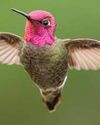
The World's Best-Known Hummingbird?
Intensively studied, the gem-like Anna’s hummingbird is a welcome visitor to the gardens of America’s most populous state: California. Bill Naylor investigates its life history
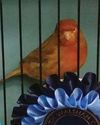
The charm of the English Cinnamon
Despite its long and complicated history, the true Cinnamon canary is still with us – in the hands of a tiny group of breeders. DONALD SKINNER-REID reckons it deserves wider appreciation
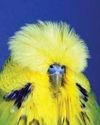
Spangles: a personal overview
FRED WRIGHT relates a budgie story of over-exploitation, consequent problems and abundant potential for the future

New converts to old breeds
Old and rare canaries have a reputation for adding fresh interest and challenge to the hobby. PETE HOOK and NICK JOY agree, and explain the birds’ charm to Dave Brown

Themed aviaries are a hit with the public at annual Stafford show
DECORATIVE AVIARY DISPLAYS from a CBS and an online bird keeping advice group were voted in the top three by visitors for the inaugural Stafford Aviary Competition.
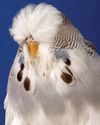
Pieds with potential
More than just a lesser variety, the dominant pied will introduce challenge and change into most studs, reckons CLIVE WAKEMAN. Here he discusses pairings to try and others to avoid

Club News
Welcome to the club and show pages – the bit that’s all about you Results: convention, specialist & rare and Breeder of the Year
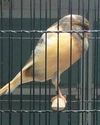
Canaries Month by Month:
With Christmas around the corner, BRIAN KEENAN is well into his winter programme, and reckons he might deserve a nice outcross
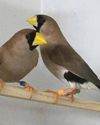
Smart Choice, Docile Nature
Dave Brown welcomes the masked grassfinch to his birdroom and shares advice on this lovely Australian species
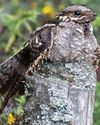
The truth about the ‘flying toad'
Odd local names and weird superstitions can’t hide the beauty and elegance of the nightjar, a species that has made a fascinating subject in a few zoo collections, reveals BILL NAYLOR